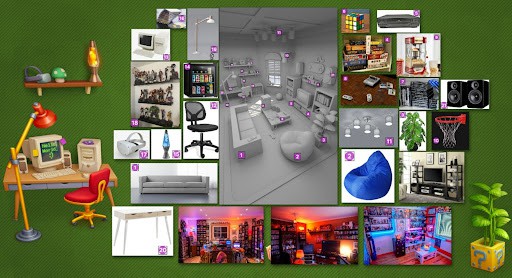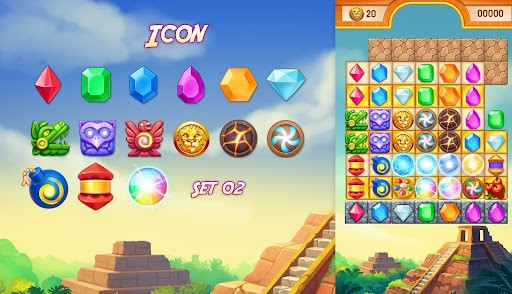Stages Of Game Development – From Idea To Success
Development of Computer and Mobile Game: Maine Stages
Video game development is a few heavyweights that rule a very long and tedious industry. It is very difficult for a beginner to enter the industry and even more so to break into a leading position. Development begins with the creation of the concept of the game. It ends with an analysis of the reaction of the consumer (gamer) to the finished product and the correction of identified errors in the game.
Today there are a huge number of platforms and consoles for video games, and the modern consumer’s expectations have increased significantly.
Every video game detail requires weeks or even months of work, so the entire development process has become very complex, stressful, and profitable. As a result, PC and mobile games have evolved to a futuristic level, and that’s exactly what makes this industry elite.
Even though video game development is inherently chaotic, there are still structures and frameworks to keep studios and projects running efficiently. The stages of game development are as follows:
- Planning
- Pre production stage
- Game production
- Testing
- Pre-launch stage
- Launch
- Post production stage
Types of Video Game Developers
Each team of specialists has a specific task on which they are focused. Behind each team is a producer and a project manager who ensure the collective work of all groups that work on the game development project.
The major teams are artists, animators, programmers, and designers. Each team member has some specific skill that he puts into development, and no one else interferes with their work.
Along with the major teams, there are also secondary teams that are also involved in development. All these departments share the same responsibility for ensuring that everything runs smoothly and that there are no difficulties during all stages of development. The result also depends on the game development experience of the whole team, and not just on the core team of coders and designers.

Planning a Video Game
Planning is the main game development process step. Before writers can start writing, designers can begin designing, and developers can start development, there must be an idea for a video game. This is the very first part of the planning phase and the roots from which every video game grows.
During the planning phase, you will need to answer the most basic questions, such as:
- What kind of game concept do we produce?
- Game mechanics
- Game development timeline
- 2D or 3D
- What key features should it have?
- When and where does it happen?
- Who is our target audience?
- What platform are we doing this on?
It may not seem like it, but the idea of a video game is one of the hardest parts of the video game development process. This sets the standard for every employee involved in making a game and gives publishers a general idea of what to expect.
Preparation for Production
The formed team begins to figure out how to implement the plans. A brainstorming of absolutely everyone starts, from game designers, artists, scriptwriters, and programmers, ending with engineers, publishers, project managers, and other departments. Finally, they put the puzzle together to see the whole picture.
The script writers write the story and meet with the engineers, who explain that the current studio technology does not allow creating a game with hundreds of characters. Next, designers and artists agree on the style and draw concept art. Next, developers and engineers plan to implement mechanics in scenario conditions, physics, and other rules of the world.
Production and Video Game Development
At this stage, the actual development of the game takes place. The process involves the use of specialized equipment and the involvement of a professional team to collect and develop all the necessary content or game code. Therefore, in each team (programmers, animators, designers, etc.), the main person is responsible for quality control and meeting deadlines. This helps the team or investors see how the process is going and what the quality of the final game might be.
It is important to note that the production stage often involves the main resources and the majority of employees. Most of the effort goes into the game design process and visual amplitude. Often, developers turn to a professional game art outsourcing studio for help, as this allows them to offload human resources, prepare a game design document and make it easier to create a game.

Game Testing
At this stage of the game development process, the testers come into play and taste all the game features. The goal of the tester is to find errors in the program code that can negatively affect the gameplay. The gamer is on the other side and interacts with a ready-made software product. But gaming experience can greatly help the tester, because it will allow you to evaluate the gameplay more deeply.
Testers also mercilessly attack the game engine for maximum performance on the best devices to prevent crashes and freezes in a variety of scenes and stages. Game making bugs when the code is erroneously written or the conditions are not met – the tester’s task is to point out this error to the programmers and retest the same place. Typically, a gameplay features test can take over 100 hours. If we are talking about online games, then we also need to analyze the stability of the connection of the game itself to the Internet. Explore exciting game tester job opportunities and contribute to the perfection of gaming experiences through Leaderboard Jobs.
Pre-launch Step
Finally comes the final of the testing phase. Once a game has been developed, testers must play it and find all the possible bugs it might contain. For all identified errors, a solution is developed. Then the graphics and gameplay are adjusted, and the product is ready to be handed over to the manufacturer. Marketing is also a very important part of the game development process, and it is constantly involved in all stages of production. Finally, a non-disclosure agreement about the game must be concluded with the developer; otherwise, consumers’ reactions may be spoiled.
Prelaunch is a busy time for game studios. The reason for such tension is the fear of game failure or unmet expectations of gamers. But this is an important step that will help you understand a few moments, for example, whether the target audience is chosen correctly or what needs to be removed/added.
The team may conduct a survey to discuss what worked and what did not and determine what could be done better next time. Finally, when a game design document, assets, and code are finalized, assembled, and stored in case they are needed in the future in the game development process.
Launching the Game
The months leading up to the game’s expected launch date are mostly spent fixing many old and new bugs found during the testing phase. The studio will create a hierarchy of bugs for games with many bugs to fix. This hierarchy will include crash bugs at the top and minor bugs at the bottom.
Post-Production Game Development
Post-launch is one of the most exciting moments for any game studio. Post-production is the stage of maintaining the performance of the game. Launching the project and gaining an audience does not mean the autonomy of the game. Developers still need to fix code, testers still need to test new content, and designers need to create a visual update. Moreover, you can still use the game development services to maintain the game.
In general, this stage is the final one in development, but in terms of the functioning of the game, it is only the first step in updating the content and your project.
FAQ
What are the 7 main game development stages?
Game studio experts distinguish the following stages: Planning, Preparation, Production Testing, Pre-launch, and Post-production.
What is pre-production in video game development?
Pre-production is the process of preparing for the production of a game. The pre-production stage includes three sub-stages: idea search, concept creation, and prototyping.
How long is pre-production on a game?
It all depends on the game. For small projects, this stage can take from several days to a week; for large projects, it takes more than 2-3 months.
What are the stages of game development in Alpha/Beta?
Alpha means an earlier version of the product. Alpha versions are often very different from the final product, have bugs, errors, and in general, the product has just begun to be created. Beta versions are more thought out and worked out.
How is game development done?
Programmers write source code, and artists draw graphics (sprites or 3D models of game elements). Sound engineers develop sound effects, and composers write music for the gaming industry.



